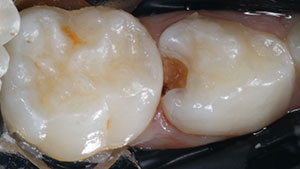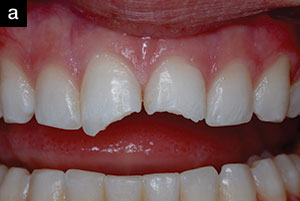Building and sustaining a successful dental practice has never been an easy task, but the challenges presented in these uncertain times can be exceptionally daunting. We live in a world filled with global anxiety, where people are simply not as trusting of each other. Crime continues to be a major concern in our society, punctuated by an alarming increase in drug and sexual activity in our adolescent and teenage population. The family unit is often in a state of crisis, with shrinking employment opportunities in many sectors, mothers and fathers both working trying to make ends meet, and the peripatetic pace of “over-scheduled” family activities. The continuing rise in the divorce rate has multiplied the pressures on single parents to provide adequate financial and psychological sustenance for their children.
The healthcare climate is in a state of flux, where more people are demanding and not always receiving financial assistance to pay for their health needs. This sense of entitlement has reached such a level that patients are often resentful that they have to assume any responsibility whatsoever for their well-being. There is a palpable desperation in the population today. That desperation is driven by the need to find a perfect happiness that is nonexistent. We’re searching for the perfect wife, the perfect husband, the perfect job…having perfect children in a beautiful house and a beautiful car. Looking good…feeling good. I’m OK. You’re OK, but I’m more OK than you.
While parents are so preoccupied with the search for the good life, the real job of parenting is being neglected to a great extent. Loving parents are friends and pals to their kids instead of being the mentors, the guidance counselors, and the disciplinarians that are required to help their children transition to responsible adults. Peer pressure has taken over as the dominant influence in a child’s life, and parents are more out of touch with what’s really going on with their children.
The father and the mother are often the last people to find out about their child’s involvement with crime, drugs, or sexual activity. The frustration that parents feel about being so out of touch adds even more stress and pressure to the family. It is with this baggage that they arrive in our offices filled with anxiety and unrealistic expectations, and ill-equipped to handle what should be a pleasant life experience.
DENTISTS AND CHILDREN
We think of ourselves as dentists, but bear in mind, we don’t exist in a vacuum. We exist in that same pressure-filled world as our patients, so we must be prepared to deal with the expected as well as the unexpected in a positive and professional manner.
Children are the seeds of a new practice and the lifeblood of an existing one. Mention the word “children,” and it conjures up visions of love, fantasy, imagination, fun, and laughter. But for many dentists the word “children” conjures up feelings of horror and dread at the thought of facing a whining or screaming child with a runny nose, a full diaper, a dirty face, and God forbid…a cavity in a primary molar. These negative emotions are major obstacles that cause dentists to avoid children at all costs. Parents, teachers, and doctors, in fact all those who work with children, are struggling to come to grips with their attitudes and feelings about children and how best to deal with them. On one hand, there is the obvious obligation to love children and care for them, but subliminally there is the resentment and frustration they often elicit.
Truth be told, many dentists live in fear of a child crossing their doorsteps, and when faced with the prospect of treating a child, they become so anxious and uncomfortable that they are rendered incapable of thinking rationally. Hence, they quickly refer the child to a pediatric specialist. They’re more inclined to extract a difficult impacted wisdom tooth on a cantankerous adult than attempt a prophylaxis or a restoration on a reluctant child.
The fact is that pediatric specialists are not the primary resource when it comes to medical or dental care for children. General practitioners treat the overwhelming majority of child-patients, and that’s why it’s important that the general practitioner be armed with the mental strength and clinical competence to work with children comfortably and effectively. Although most dentists possess the clinical skills and are fortified with an endless supply of technological resources and products, the confidence and sense of purpose required to treat children successfully are often lacking.
Surveys of Medicare programs in many states reveal a reluctance on the part of dentists to treat children, especially the very young child. The reasons given often center on poor reimbursement and the difficulty they encounter when they attempt to treat the very young child.
The concept of how winning the heart of one child can result in an influx of adult patients to the practice should not be a difficult one to grasp. How many times have I heard a dentist say, “I can’t afford to waste my time. I could be doing something more productive.” Invoking the word productivity, of course, is a way of cloaking the mistaken impression that pediatric dentistry is not financially rewarding. Nothing could be further from the truth. As a matter of fact, the pediatric portion of a dental practice should have the healthiest net-to-gross relationship compared with other segments of the practice.
Unfortunately, dental practitioners often consider dentistry for children as an inconsequential afterthought. As a result, they’re missing a most-rewarding experience personally, professionally, and yes, even financially. Exhibiting management skills with children is one of the quickest ways to jumpstart a practice without the burdensome investment in additional equipment or materials. All that’s required is an attitudinal adjustment.
EXPERIENCE IS THE BEST TEACHER
A dictionary definition of the word “expert” describes “one who has special skill or knowledge as a result of practice, experience, and direct observation.” Basic academics and theoretical discussions are certainly necessary in any field, but never has the expression “experience is the best teacher” been more relevant than in dealing with the idiosyncrasies encountered in the wonderful world of children.
The case for my expertise has its roots in more than 4 decades of clinical pediatric practice, along with teaching and writing. Add to that the 46 years of marriage, 4 children, and 7 grandchildren, and you have a history filled with enough good and bad and ups and downs to offer some valid observations about the relationship between children, parents, dentists, and life in general.
We are inundated with books written by so-called experts spewing forth information that in theory may have some value, but provides very little practical benefit to those desperately looking for answers. To an alarming extent, over the past 40 or 50 years we have become more dependent on “expert advice” and less confident in our ability to use common sense.
The dental office is a microcosm of the world as a whole. What happens each and every day in my office with the interrelationships between parents, children, dentists, and office staff has provided a unique insight—a window to the world—substantiated by the years of experience. Children and parents…smiling, laughing, hugging, whining, complaining, crying, screaming, swearing, and throwing up… have been my life. And then there’s the magic that happens at least once each day.
Dentistry for children is about being upbeat, being optimistic, looking at the bright side, new beginnings (not endings), new friends, sunrise (not sunset), and lots of fun. Our practice is now serving our third generation of children, and the youngest partner in our practice was my patient when she was a 2-year-old. We see children at their best and at their worst, and it takes patience and a sense of what makes children and their families tick to make the dental experience a positive one.
AN UPCOMING JOURNEY
As a fellow traveler, a fellow suffering expert if you will, I’d like to invite you on a journey. This journey will take the form of a series of 3 more articles to be published during the next year:
(1) Parents and Children …The Family in Crisis
(2) Parents… Children… and the Dental Team …The Kids are Here …NOW WHAT?
(3) A Common Sense Approach to Clinical Pediatric Dentistry for the General Practitioner.
We’ll be covering a lot of ground, focusing on the image of the dentist, child development, parent-child relationships, and the significant role that we as dentists play in the context of those relationships.
Armed with that kind of information, we’ll address the all-important first visit, separating children from parents for maximum success, managing the overly concerned parent and the overwrought child, and the roles played by dentist and staff in the education of parents and children. I’ll share my practical philosophy of clinical dentistry for children, with much attention directed toward effective local anesthesia or “the dreaded shot.” Bread-and-butter methodology for modifying the negative behavior of the reluctant child-patient, without the use of restraints or mind-altering drugs, will receive major emphasis. Some time will be spent on the integration of the “special child” into the mainstream environment of the average dental practice as well.
Dietary considerations, breast-feeding, nursing bottle syndrome, caries control, and prevention and oral habits will be discussed to the extent that they relate to the dentist-child-parent relationship.
Also included will be a segment on the economics of pediatric dentistry, zeroing in on the principles of treatment planning for the long term, case presentation, generic fee structuring, and appointment scheduling that will be applicable in any practice. Superimposed on this scenario will be emphasis on the team approach for providing dentistry for children in a manner that will have the most positive impact on a dental practice.
It would be unrealistic to expect clinical success with children or adults without first getting into their minds and establishing trust. First the heart and the mind…then the mouth and the teeth. Treating children effectively with love and respect should be instinctive, but there is a methodology to the process as well. It is my hope that the common-sense nature of this series of discussions will ignite the spark that will add an exciting and rewarding new dimension to your personal and professional lives.
Dr. Berman is an internationally recognized pediatric dentist with a career as a successful practitioner and a lecturer spanning more than 4 decades. Dr. Berman has been an ambassador for dentistry as a health reporter on CBS (News Radio 78), via media appearances as a consumer advisor for the ADA, the Chicago Dental Society, and the Academy of Pediatric Dentistry, and co-author of Essentials of Modern Dental Practice. He has published numerous articles in the dental literature, as well as practice materials and education videotapes. His public relations expertise is in demand when shows like OPRAH are tackling difficult issues such as AIDS, amalgam, dental phobia, and consumer rights, and he’s the principal dentist in a practice in Chicago. For more information about Dr. Berman’s seminars or to reach him, call (773) 764-0007 or e-mail marvy18@prodigy.net.











